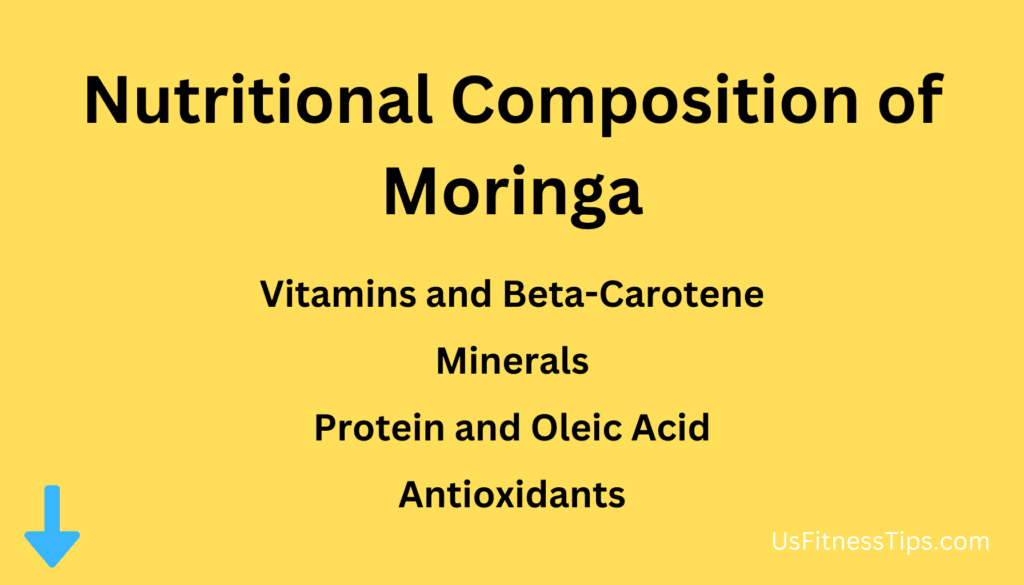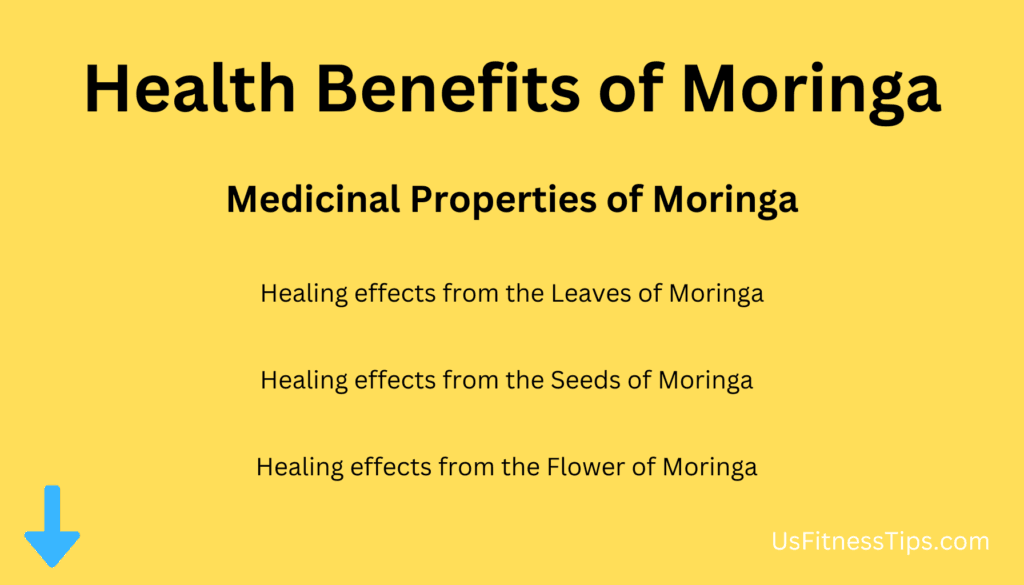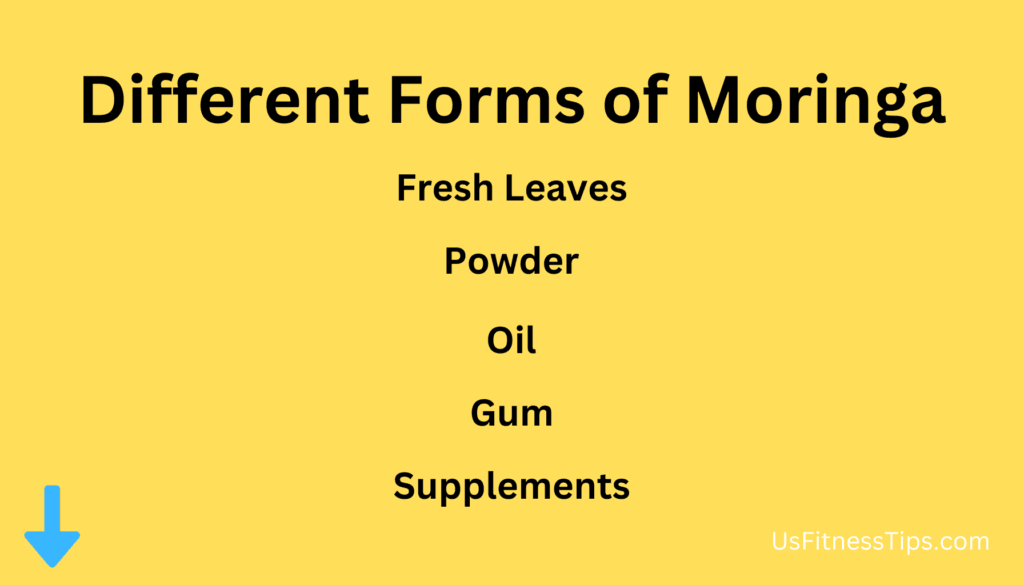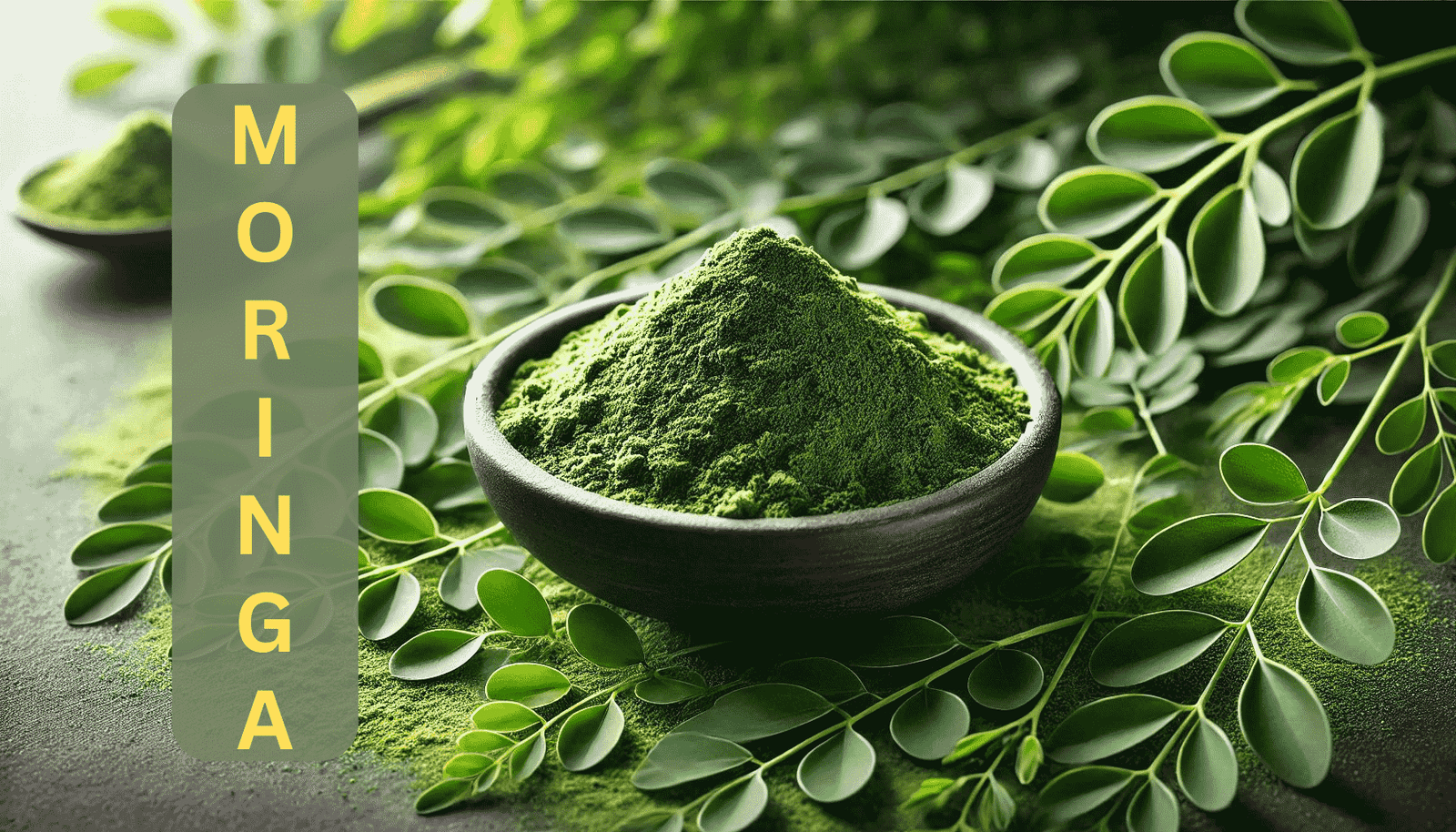What is Moringa?

Moringa, Known as the “miracle tree,” it’s packed with nutrients and health benefits. This plant has been used for centuries in traditional medicine, but it’s only recently gained popularity around the world.
Moringa Oleifera is a fast-growing tree native to parts of Africa and Asia. It also called the “tree of life,” it’s a powerhouse of nutrition. One of Moringa’s standout features is its ability to tolerate drought, making it an incredibly resilient plant.
Nearly every part of the tree leaves, seeds, pods, roots, gum and bark is packed with nutrients and has practical uses. Its versatility and nutritional profile make it one of the most reliable and affordable sources of good nutrition worldwide.
Nutritional Composition of Moringa

Moringa is like nature’s multivitamin. Here’s what you’re getting:
- Vitamins and Beta-Carotene: Moringa leaves are loaded with beta-carotene, which is great for vision and skin health. They also provide vitamins A, C, and E to boost immunity.
- Minerals: Rich in calcium, potassium, and magnesium, essential for strong bones and muscle function.
- Protein and Oleic Acid: Its leaves are a good plant-based protein source. Dried leaves also contain about 70% oleic acid, making them excellent for skincare products like moisturizers.
- Antioxidants: Compounds like quercetin and chlorogenic acid help reduce oxidative stress and inflammation.
Fun fact: Moringa leaves have more vitamin C than oranges and more calcium than milk!
Health Benefits of Moringa

Moringa is widely used for various medicinal purposes. It helps treat dysentery and colitis, and a poultice made from its leaves is an effective remedy for inflammatory conditions such as glandular inflammation, headaches, and bronchitis.
The pods are used to treat hepatitis and relieve joint pain, while the roots are traditionally used to address kidney stones, liver diseases, inflammation, ulcers, and pain associated with the ear and tooth.
The stem bark is utilized to treat wounds and skin infections.
In India, the gum extracted from Moringa is used to treat fever and induce abortions.
The seeds act as a laxative and are used in treating tumors and issues related to the prostate and bladder. They also show potential in treating arthritis by reducing oxidative stress and inflammation.
Preparations from Moringa leaves benefit nursing mothers and malnourished infants, enhancing overall health. The leaves are also useful for treating insomnia and wounds.
Moringa is extensively used in the cosmetic industry today and was similarly employed in ancient Egyptian history for making dermal ointments.
Medicinal Properties of Moringa
Moringa has been used in traditional medicine for various health conditions:
- Bark: Known to help with ulcers, toothache, and hypertension.
- Roots: Found effective for treating toothache, helminthiasis (parasitic worms), and even paralysis.
- Flowers: Used for ulcers, enlarged spleen, and as an aphrodisiac.
- Leaves: A natural remedy for malnutrition, particularly in infants and lactating mothers.
Healing effects from the Leaves of Moringa
Oxidative damage protective activity, Exerts an excellent effect as anti-diabetic agent, Antioxidant and anti-microbial, Potential prevention of diabetes mellitus and other diabetic complications, Prevents viral and bacterial infections, potential antioxidant, Promising results as anti- cancer, anti-arrhythmic, anti-inflammatory, Boosts athletic performance, reduces fatigue, helps weight loss, protects against herpes, HIV, cancer, Cardioprotective, renoprotective, anxiolytic, neuroprotective, Anti-inflammatory, anti-neoplastic.
Healing effects from the Seeds of Moringa
Potential prevention of diabetes mellitus and other diabetic complications, Increased breast milk production, Reduces blood pressure and reduces free radical damage to the cell, Anxiolytic effect, used in membrane localization of the enzyme, Trypanocidal and anti-leukemic effect.
Healing effects from the Flower of Moringa
Treatment of deficiency caused by genetic defects, and acute urinary tract infections.
Different Forms of Moringa

Moringa comes in several forms, giving you plenty of options to enjoy its benefits:
- Fresh Leaves: Use them like spinach in salads, stir-fries, or soups.
- Powder: Versatile and easy to use, it’s great in smoothies, teas, or sprinkled on your meals.
- Oil: Perfect for skincare and cooking.
- Gum: The mixture of gum with sesame oil was quite often used to alleviate fevers, asthma, headaches, intestinal complaints, dysentery, and to treat rheumatism and syphilis
- Supplements: Capsules and tablets are an easy way to get your daily dose.
How to Use Moringa in Daily Life

In the Kitchen
Try these ideas:
- Add Moringa powder to your morning smoothie for an energy boost.
- Brew Moringa tea for a calming, nutrient-packed drink.
- Stir Moringa into soups or sprinkle it over roasted veggies.
credit:Skinny Recipes
As a Beauty Ingredient
- Mix Moringa oil with your favorite moisturizer for glowing skin.
- Use it as a natural hair conditioner for hydration and shine.
credit:Jennifer Fugo
As a Supplement
Capsules are perfect for busy days. Just follow the recommended dosage on the label to enjoy its benefits.
The Sustainability of Moringa

Moringa isn’t just good for you; it’s good for the planet too. The tree grows in harsh conditions, requiring minimal water, and helps combat soil erosion. It’s often referred to as the “tree of life” for its role in providing food and income in impoverished regions.
Conclusion
Moringa is truly a gift from nature. From its incredible nutritional profile to its versatility in cooking and skincare, it’s a superfood that deserves a spot in your daily routine. Whether you’re looking to boost your health, enhance your beauty routine, or explore natural remedies, Moringa has something for everyone. Start incorporating it into your life today!
Frequently Asked Questions (FAQs)
Is Moringa safe for everyone?
Moringa is typically safe for most people when consumed in moderate amounts. However, pregnant women and individuals on specific medications should consult a doctor before use.
How much Moringa should I consume daily?
Dosage varies based on the form you use. Typically, 1-2 teaspoons of Moringa powder or the equivalent in capsules is recommended. Always follow product guidelines.
Can Moringa help with weight loss?
Yes, Moringa’s high fiber content and metabolism-boosting properties make it a great addition to a weight-loss plan.
Does Moringa have any side effects?
overconsumption can cause digestive problems such as nausea or diarrhea. It’s best to stick to the recommended quantities to avoid any adverse effects.
Can I use Moringa topically?
Absolutely! Moringa oil is great for skin and hair care, offering hydration and nourishment.
Where can I find fresh Moringa leaves?
Fresh Moringa leaves are often available at local health food stores or specialty markets. You can also grow your own tree if you live in a warm climate.




